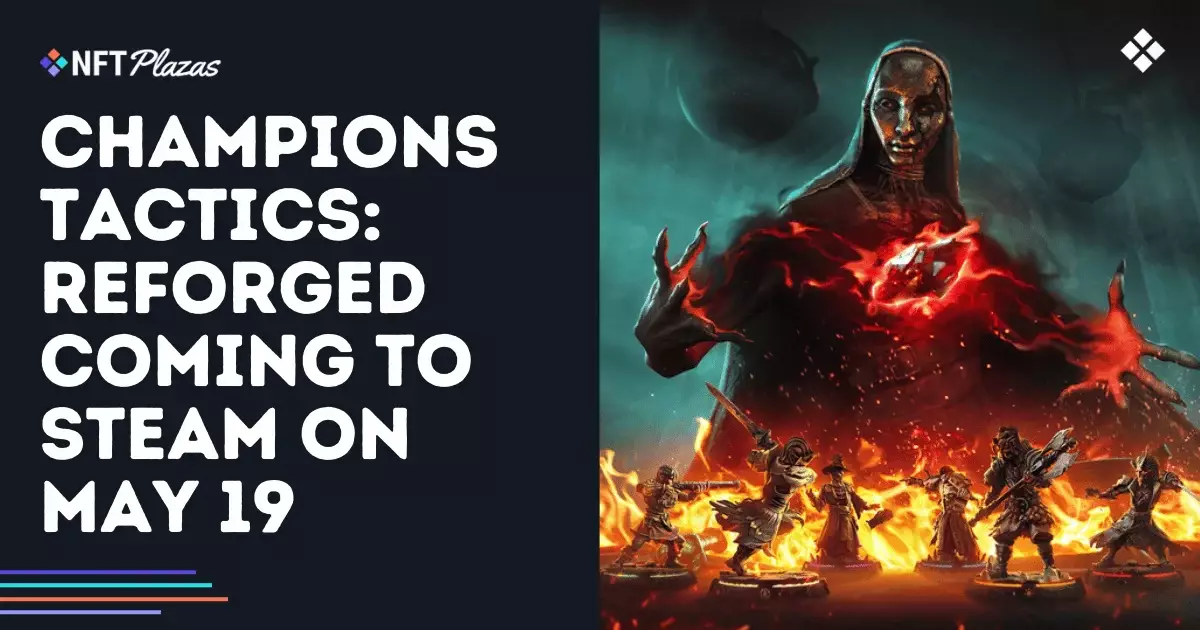With the rise of NFTs and blockchain technology in various sectors, the gaming industry has uneasily embraced these modern trends. Once celebrated for their potential to revolutionize how games function, these innovations are now creating rifts among developers and gamers. A stark example is Ubisoft’s decision to release *Champions Tactics: Reforged* without blockchain integration or NFTs. This move indicates a growing disillusionment with the NFT gaming model—one that prioritizes digital ownership over gameplay—proving that even big-name studios can recognize when a trend isn’t working.
The transition from web3 back to a more traditional gaming mechanic highlights an essential notion: gaming should primarily be about the experience, not merely about profit generation through assets that can be traded and sold. Despite the promises of decentralization and potential economic gains, the NFT experiment in gaming has largely been a colossal misstep, confusing players and alienating them from what they love most—immersive gameplay.
Champions Tactics: A Nod to Traditionalism
Ubisoft’s *Champions Tactics: Reforged* exemplifies a significant pivot by returning to its roots. Launching on Steam on May 19, this free-to-play game emphasizes a squad-based, turn-based strategy devoid of crypto complications. By removing the blockchain elements, Ubisoft aims to cater to gamers who feel overwhelmed by the technological barrage that accompanies NFT gaming. The game introduces champions that can be unlocked via in-game items rather than through monetary investments in NFTs or attention to market trends.
This shift may seem trivial to some, but it is, in fact, groundbreaking. Individuals who may have once been skeptical of NFTs can now engage in tactical competition without the distraction of digital currencies or virtual commodities bloating the experience. Indeed, this is a much-needed return to focus—where skills determine victory instead of financial investment.
However, some players may still find Ubisoft’s in-app purchases vexing, labeling the experience as “tactical play to win.” While emphasizing competition over wallet weight, does it relinquish the financial density prevalent in web2 gaming? This caveat could divide the community, echoing sentiments regarding microtransactions and their pervasive presence.
The Divisive Ubisoft Connect Requirement
Another point of contention emerges with Ubisoft’s linkage requirement that mandates connection to Ubisoft Connect to access the game on Steam. Many in the gaming community have ridiculed platform-specific ecosystems that complicate what should be a straightforward login. For players accustomed to a seamless experience, this stipulation could provoke ire, further heightening Ubisoft’s position as a controversial player in the industry.
While the integration of features like achievements and trading cards is undoubtedly welcoming, the necessity of pairing with Ubisoft Connect may deter those who prefer the streamlined nature of platform-first gaming. This raises important questions regarding the evolving philosophies of user experience and accessibility in an industry still largely unregulated, despite its vast economic significance.
The Competitive Landscape: Will It Thrive?
Will *Champions Tactics: Reforged* find its place among an already saturated market of free-to-play games? The answer remains uncertain. Its appeal lies in accessibility, as it leans away from the chaotic economics of NFT-based systems. By focusing on skill-centered gameplay, it touches upon the core desire shared by many gamers: to engage in competition defined not by financial privilege but by tactical excellence.
Ubisoft’s decision to retreat from web3 technologies may signify a burgeoning trend as developers seek to evolve beyond current NFT cronyism. As gaming experiences promise to be more rooted in gameplay and less in blockchain fluctuations, this departure serves as a statement. The company may be reminding us that even amidst the most spurious or profitable formats, quality and engagement must remain paramount.
The forthcoming launch offers promise, albeit tempered with skepticism. In an industry still grappling with the ramifications of the NFT craze, defining the intersection between technology and entertainment has never been more crucial. As the community of gamers continues to evolve, a retrograde approach could just make sense.

